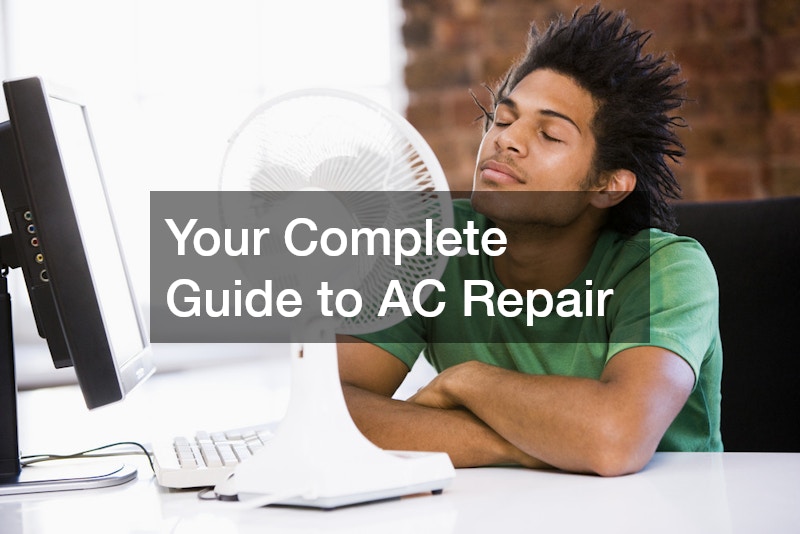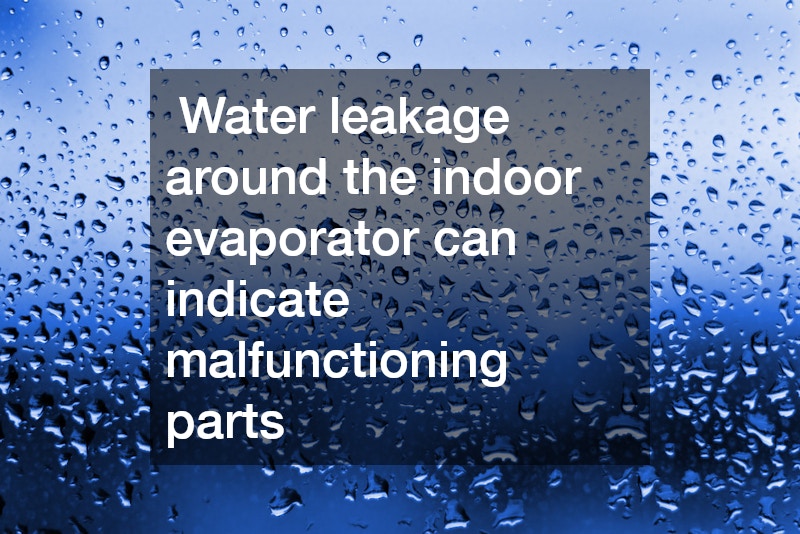
Your Complete Guide to AC Repair
In this comprehensive guide, we aim to provide you with all the information you need to troubleshoot, diagnose, and repair your air conditioning system. We will answer some of the most frequently asked questions to empower you with the knowledge needed to ensure your AC runs smoothly all year long.
How Do I Know If My AC Needs Repair?
One of the first indicators that your AC may require repair is the presence of unusual noises, such as grinding or squealing. If you notice reduced cooling performance despite temperature settings, it’s another red flag that needs attention.
Strange odors emanating from the unit can signal mold growth or burning components. Water leakage around the indoor evaporator can also indicate malfunctioning parts that need immediate repair.
Furthermore, if you notice frequent short cycling, where the AC turns on and off more than usual, this could point to underlying issues. Addressing these symptoms early can prevent further damage and maintain comfort in your home.
Routine maintenance involves cleaning or replacing air filters every one to three months, ensuring efficient airflow. Checking and cleaning the condenser coils annually also helps maintain the system’s performance.
Regularly inspecting outdoor units for debris buildup can prevent airflow obstruction and potential damage. Keeping a maintenance log helps track service intervals and identifies when professional servicing may be necessary.
Incorporating these preventive tasks into your schedule can extend your AC’s lifespan and reduce unexpected repair costs. A well-maintained system not only performs efficiently but also conserves energy, saving on utility bills.
What Causes AC Units to Fail?
Mechanical failures often arise from issues with compressors, which play a crucial role in refrigerant cycling. Refrigerant leaks are another common problem, disrupting optimal cooling and requiring immediate repair.
Faulty electrical connections can lead to system shutdowns and may pose safety hazards. Regular checks of electrical components are essential to prevent sudden breakdowns.
Additionally, fan problems can lead to inadequate airflow or overheating, potentially damaging the compressor. Ensuring all mechanical components are well-maintained is key to preventing these failures.
The longevity and efficiency of your AC are highly influenced by environmental conditions. For instance, units operating in high-temperature areas often work harder, experiencing more wear.
Moreover, excess dust and debris in the environment can lead to clogs and reduced efficiency. Regular cleaning and strategic placement of outdoor units can mitigate these impacts.
User habits like constant thermostat adjustments or overly low settings can strain the system. Adopting energy-efficient settings and maintaining consistent temperatures aids in preserving your AC’s functionality over time.

Can I Repair My AC Myself?
Certain AC repairs, such as changing air filters or cleaning external components, can be effectively handled without professional help. DIY enthusiasts should adhere to safety guidelines, like ensuring the power is turned off before starting any work.
Simple issues, such as unclogging a drain line, are also feasible for non-professionals to handle. However, failing to adhere to the correct procedures can exacerbate problems and lead to higher repair costs.
For safety, always wear protective gear and use the correct tools to avoid injury. Homeowners should avoid tampering with complex components like refrigerant lines or electrical systems, which require professional expertise.
Professional services are advised when dealing with refrigerant leaks or compressor replacements due to their complexity and potential hazards. Additionally, if the unit frequently shuts off or runs inefficiently, expert diagnosis may be necessary.
Attempting advanced repairs without proper training may void warranties and lead to costly consequences. Therefore, enlisting a licensed technician ensures repairs are done correctly and safely.
Professional assessments provide peace of mind, particularly for extensive issues that require specialized knowledge. Investing in expert assistance can ultimately prolong your system’s life and enhance performance.
How Much Does AC Repair Typically Cost?
Repair costs can vary significantly, with minor fixes like replacing a capacitor ranging from $100 to $300. More critical repairs, such as compressor replacement, can cost $1,000 or more.
Labor fees and part costs contribute to the overall expense, and these can vary by region and service provider. Understanding the type and scope of repair helps anticipate financial commitments.
Conducting a cost-benefit analysis between repair and replacement is crucial, especially for older units. This approach aids in making financially sound decisions aligned with your needs and budget.
The age and condition of your air conditioning unit are significant determinants of repair costs. Older systems may require more frequent and costly repairs due to harder-to-find parts.
Geographical location affects labor rates and availability of services, contributing to cost differences. In some regions, higher demand in peak seasons may increase repair expenses.
Furthermore, the extent of damage and the type of technology used in the system also play a role in determining the total cost. Investing in regular maintenance can mitigate these costs by catching issues early before they escalate.
By understanding the signs of a failing AC, the causes of common issues, and the costs involved, you can make informed decisions about repair and maintenance. Whether you’re handling minor fixes yourself or seeking professional help, this guide serves as a valuable resource for ensuring your AC system operates efficiently and reliably.

